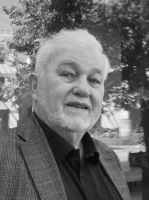Organized Capitalism and Organized Science. German Examples
How can the connection between the history of knowledge, especially scientific knowledge, and the history of modern capitalism be studied? The two realms follow different logics, but they are closely interrelated. The changing triangle relation between state, market and science will be discussed with respect to the period between the increasingly organised industrial capitalism of the early 20th century, and the increasingly globalised and digitalised forms of capitalism of the early 21stcentury. The history of the German Max Planck Society and of its predecessor organisation in a century of deep-reaching scientific, economic and political change will serve as a starting point.
Biography
Jürgen Kocka taught Social History at the University of Bielefeld, History of the Industrial World at the Free University of Berlin and European History at UCLA. He has published widely in the field of modern history, particularly the social, economic and cultural history of Germany and Europe as well as comparative history of the 18th - 20th centuries. His research has frequently been located in
the field of overlap between history and social sciences. Preferred topics: the history of work, industrial enterprise, social classes and capitalism. His publications in English include Facing Total War: German Society 1914-1918 (1984), Industrial Culture and Bourgeois Society: Business, Labor, and Bureaucracy in Modern Germany (1999), Civil Society and Dictatorship in Modern German History (2010); Capitalism. A Short History (2016) and Historians and the Future (2020). He was a Permanent Fellow of the Berlin Institute of Advanced Study, President of the Social Science Centre Berlin (WZB), President of the International Committee of Historical Sciences and Vice-President of the Berlin-Brandenburg Academy of Sciences. He has held visiting posts at different institutions, among them IAS Princeton, NIAS and SCAS. He is member of several academies, among them Leopoldina. He has received honorary degrees from several European universities, e.g. Rotterdam, Uppsala and the EUI Florence, and several prices, among them the International Holberg Prize. He is Honorary Fellow of St Antony’s College Oxford


